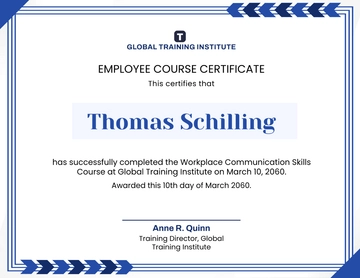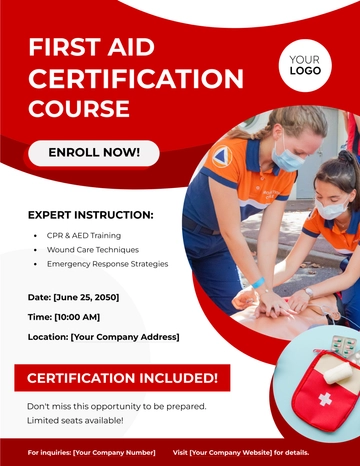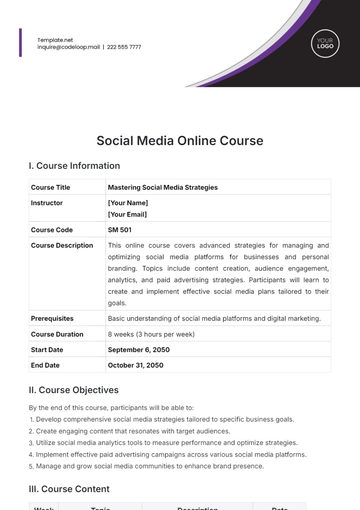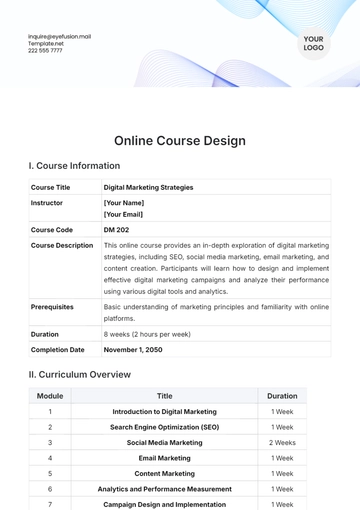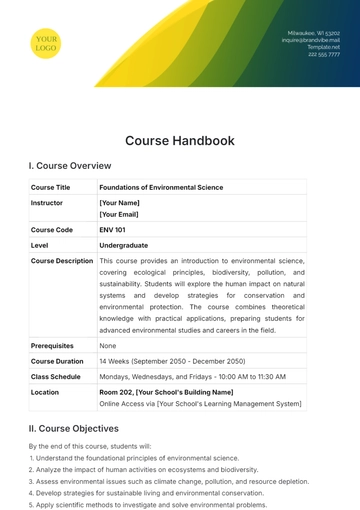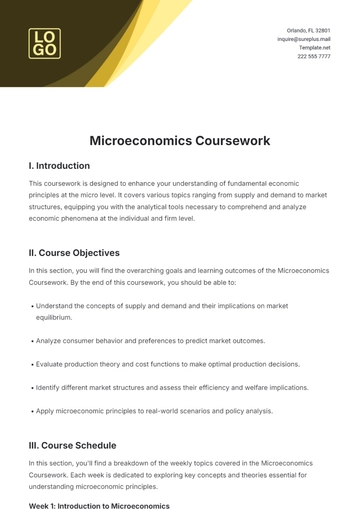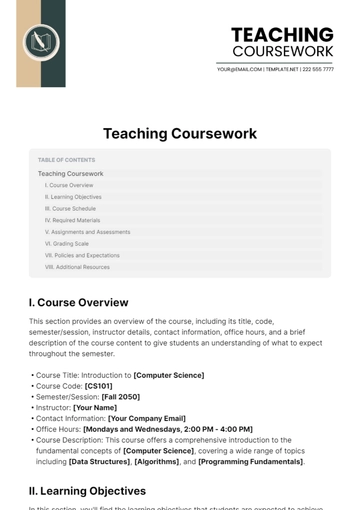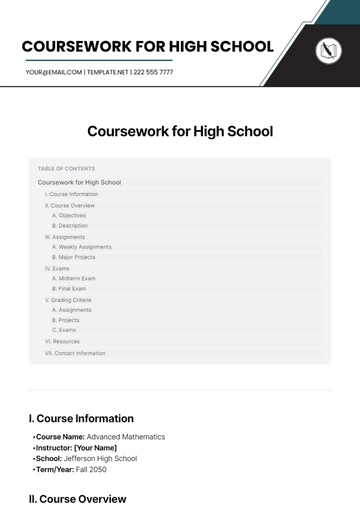Free Accredited Course
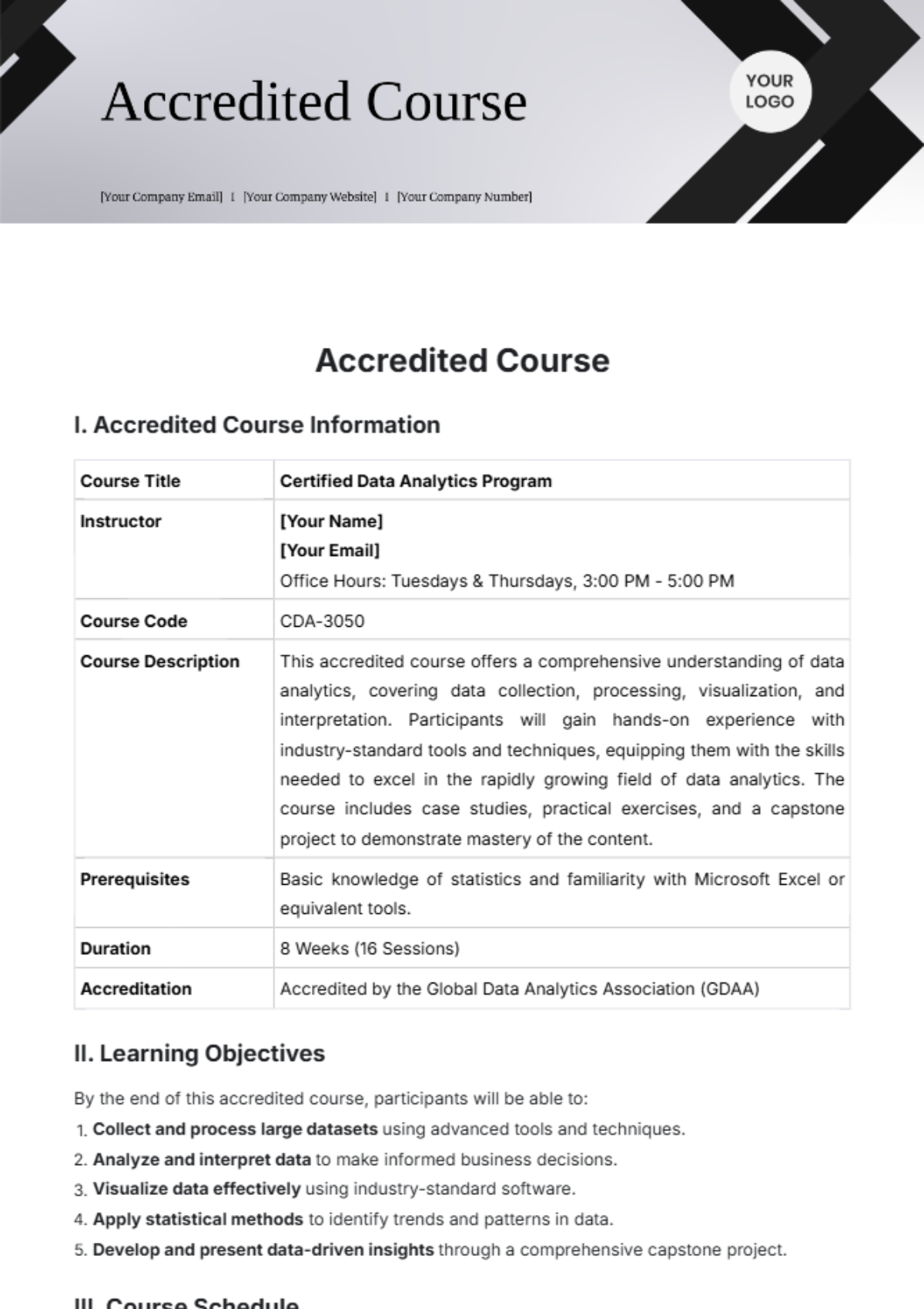
I. Accredited Course Information
Course Title | Certified Data Analytics Program |
Instructor | [Your Name] |
Course Code | CDA-3050 |
Course Description | This accredited course offers a comprehensive understanding of data analytics, covering data collection, processing, visualization, and interpretation. Participants will gain hands-on experience with industry-standard tools and techniques, equipping them with the skills needed to excel in the rapidly growing field of data analytics. The course includes case studies, practical exercises, and a capstone project to demonstrate mastery of the content. |
Prerequisites | Basic knowledge of statistics and familiarity with Microsoft Excel or equivalent tools. |
Duration | 8 Weeks (16 Sessions) |
Accreditation | Accredited by the Global Data Analytics Association (GDAA) |
II. Learning Objectives
By the end of this accredited course, participants will be able to:
Collect and process large datasets using advanced tools and techniques.
Analyze and interpret data to make informed business decisions.
Visualize data effectively using industry-standard software.
Apply statistical methods to identify trends and patterns in data.
Develop and present data-driven insights through a comprehensive capstone project.
III. Course Schedule
Week | Topics Covered | Readings | Assignments/Activities |
|---|---|---|---|
1-2 | Introduction to Data Analytics
| Chapter 1 & 2 from "The Data Analyst's Toolkit" by Maria Gomez | Assignment 1: "Data Collection and Processing: Hands-on Exercise with Real-world Datasets" |
3-4 | Data Processing and Cleaning
| Chapter 3 from "Data Wrangling with Python" by David Liu | Practical Session: "Data Cleaning Workshop: Preparing Data for Analysis" |
5-6 | Data Visualization
| Chapter 4 & 5 from "Visualizing Data" by Naomi Thompson | Group Project: "Designing and Presenting Interactive Dashboards for Business Insights" |
7 | Statistical Analysis
| Chapter 6 from "Statistics for Data Analysts" by Robert Parker | Individual Assignment: "Applying Statistical Methods to Analyze Business Trends" |
8 | Capstone Project and Certification
| Chapter 7 from "Capstone Success" by Elaine White | Final Capstone Project: "End-to-End Data Analysis Project: From Collection to Insight Presentation and Certification Exam" |
IV. Assessment Methods
Participants will be assessed based on the following:
Assignment 1 (15%):
Data collection and processing exercise involving real-world datasets.
Practical Session (15%):
Hands-on workshop focusing on data cleaning techniques and best practices.
Group Project (25%):
Collaborative design and presentation of interactive data dashboards.
Individual Assignment (20%):
Application of statistical methods to analyze and interpret business trends.
Final Capstone Project and Certification Exam (25%):
Comprehensive end-to-end data analysis project, followed by a certification exam to validate participants' knowledge and skills.
V. Required Texts and Resources
A. Textbooks:
"The Leadership Handbook" by Laura Green
ISBN: 978-1-234-56789-5
"Strategic Leadership" by James Roberts
ISBN: 978-1-234-56789-6
"Managing Conflict in Teams" by Sarah Brown
ISBN: 978-1-234-56789-7
"Leadership in Practice" by Emily Turner
ISBN: 978-1-234-56789-8
"Capstone Success" by Elaine White
ISBN: 978-1-234-56789-9
B. Online Resources:
[Your Company Website]
Data Analytics Hub
Global Data Analytics Association (GDAA)
VI. Course Policies
A. Attendance:
Regular attendance and participation are mandatory for successful course completion. Participants are expected to engage actively in all sessions and complete all assigned work.
B. Assignments:
All assignments must be submitted on time. Late submissions will incur a penalty unless an extension is granted by the instructor in advance.
C. Group Work:
Collaboration is a key component of this course. Participants are expected to work together effectively in groups and contribute equally to group projects.
D. Professional Conduct:
Participants must maintain a professional demeanor and adhere to ethical standards throughout the course. Respect for peers and instructors is essential.
E. Communication:
For any questions or concerns, participants should contact [Your Name] via [Your Email]. Course announcements and updates will be posted on [Your Company Website].
VII. Contact Information
A. Instructor:
[Your Name]
[Your Email]
B. Company Information:
[Your Company Name]
[Your Company Email]
[Your Company Address]
- 100% Customizable, free editor
- Access 1 Million+ Templates, photo’s & graphics
- Download or share as a template
- Click and replace photos, graphics, text, backgrounds
- Resize, crop, AI write & more
- Access advanced editor
Discover the Accredited Course Template from Template.net, designed for professional educators and institutions. This fully customizable document provides a streamlined format, ensuring your course materials meet high standards. Editable in our AI Editor Tool, you can effortlessly tailor it to specific needs, making it the ideal choice to elevate your educational offerings with precision and professionalism. Start enhancing your course presentations today.

